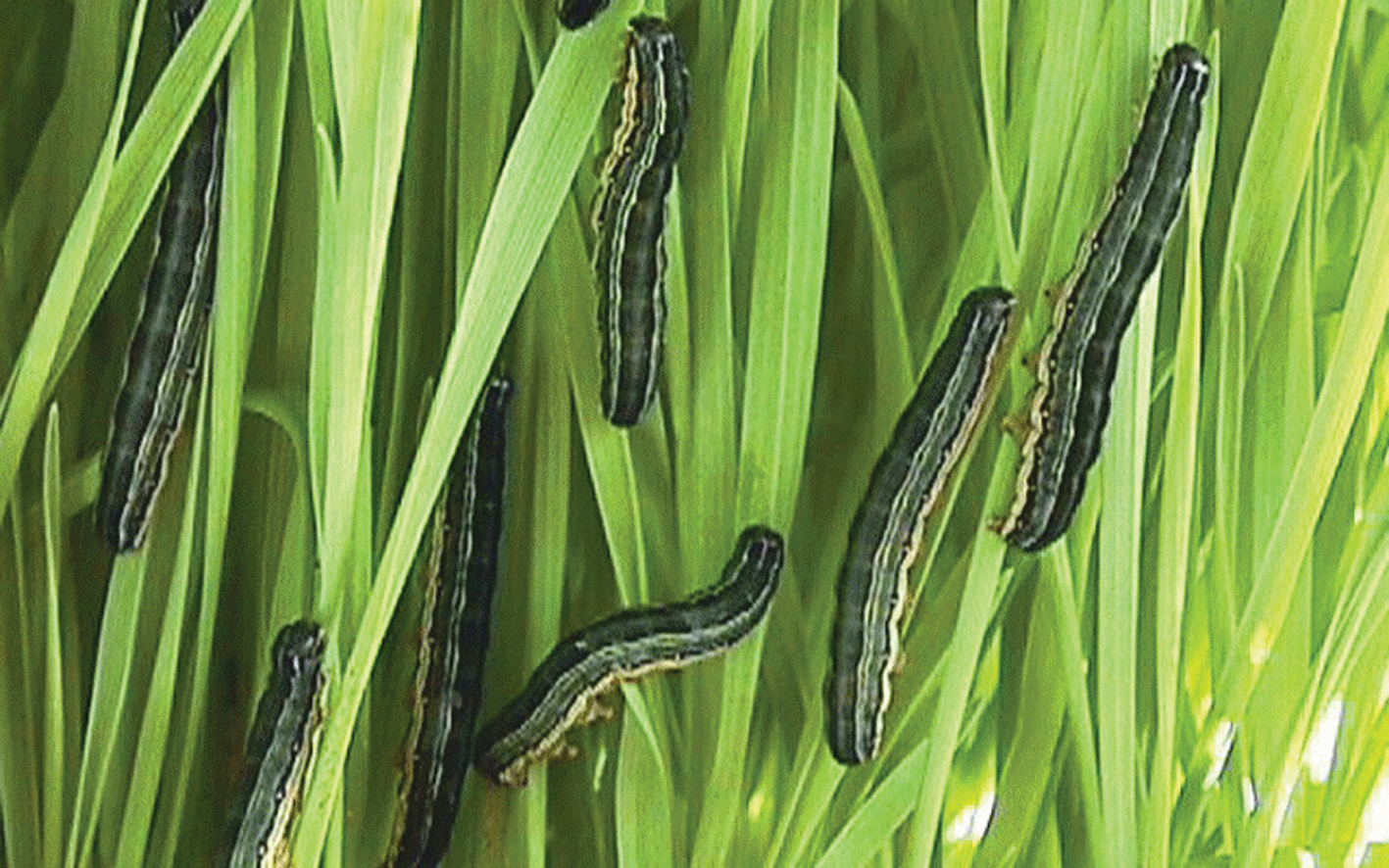May 2025
| DR GODFREY KGATLE, GRAIN SA RESEARCH COORDINATOR. FIRST PUBLISHED ON SAGRAINMAG.CO.ZA, 26 MARCH 2025 |
 |
AFRICAN ARMYWORM OUTBREAKS THAT STARTED IN BRONKHORSTSPRUIT IN GAUTENG, CAROLINA AND BADPLAAS IN MPUMALANGA, HAVE SINCE SPREAD TO NORTH WEST AND LIMPOPO. BECAUSE OF THEIR MIGRATORY NATURE, AFRICAN ARMYWORMS HAVE NOW BEEN SPOTTED IN THE FREE STATE AS WELL.
African armyworm (Spodoptera exempta) is a sporadic migratory pest that occasionally invades South Africa from central African countries. It typically arrives during January to April when wind patterns carry the flying moths into the region. Outbreaks have been currently flagged in Zimbabwe and Malawi.
While the African armyworm can cause significant damage to veld grasslands, kikuyu lawns, and maize crops, it is important to note that these insects do not typically breed in South Africa due to the colder climate, and that their populations die off before winter.
Maize farmers whose crops are beyond the tasselling stage, should not be overly concerned as the armyworm prefers younger, fresher maize plants provided the pasture food source is depleted. However, should the armyworm migrate to younger maize crops in other provinces, this could pose a larger threat. The larvae of the armyworm consume entire leaves, leaving only the veins, and can damage maize silks and ear tips if present.
Livestock farmers are encouraged to monitor their pasture lands closely to determine sudden changes caused by infestations of African armyworm. These could include reduced quality of available grazing and, potentially, toxicity to some varieties of kikuyu grass caused by a chemical response of the plants to the African armyworm.

African armyworm
Photo: Prof Kenneth Wilson
In terms of maize production, farmers should remain vigilant for any signs of the pest. There are cases where this worm has been confused with bollworm.
To control African armyworm outbreaks on veld, grazing and various crops, CropLife SA suggests registered pyrethroid insecticides where pastures are severely affected.
If colonies are encountered, please report them to Grain SA (Dr Godfrey Kgatle at godfrey@grainsa.co.za) and the Department of Agriculture’s Directorate of Disaster Management and Climate Change (John Tladi at JohnTL@dalrrd.gov.za).
Publication: May 2025
Section: Pula/Imvula